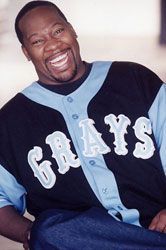NPR Poll: Black Americans Are Concerned About Health Care, But Other Than That They’re Pretty Happy

Having been hit the hardest by the recession, the housing crisis, and widespread unemployment, one would think that African Americans have a lot to be upset about. But Black Americans say that they are relatively satisfied with their lives and look forward to living the American dream.
"African Americans' Lives Today" is a new survey conducted by NPR in conjunction with the Robert Wood Johnson Foundation and Harvard School of Public Health that examined the life experiences of African Americans and drew conclusions about their concerns regarding their personal lives and communities. It wasn't all pretty, but overall the survey participants expressed high levels of satisfaction with their lives.
NPR surveyed 1,081 Black Americans, primarily from the Southern region of the United States and in urban areas. While some survey participants expressed concerns about finances, community assessments, and their dating lives, a good number of them said that they or a family member did not have access to adequate health care.
Thirty percent of those surveyed said that they or a family member has a serious problem paying doctor and hospital bills and 24 percent said that they had problems paying for prescription medication. Thirteen percent of participants said that there was a time in the past few months when they or a member of their household needed medical care and did not get it. Of those who said that they did not receive medical care, 76 percent said that they did not get necessary care for financial reasons.
The survey results are consistent with government figures from 2011 that showed that one in five African Americans was uninsured.
High blood pressure, stroke, and diabetes were the top health concerns among the survey participants, a finding that mimics national health statistics. According to the National Stroke Association, African Americans are two times more likely to die from stroke than their white, non-Hispanic counterparts. Last month, National Institutes of Health awarded $40 million in funding to develop "culturally tailored interventions" to lower the risk of stroke in racial and ethnic minorities.
The remainder of the survey assessed participants' overall satisfaction with their personal lives. "Though specific problems are seen, the majority of African Americans are also positive about their lives and their careers," said the survey. "They are optimistic about their chances of attaining the American dream."
Of the participants surveyed, 60 percent said that they feel that they will eventually achieve the American dream. Eighty-six percent of those surveyed said that they are satisfied with their lives overall, a number which included 48 percent who said they were very satisfied. Who were these extremely content people, you ask? The highest levels of satisfaction were reported by married participants, those 65 or older, and (not surprisingly) those making at least $75,000 annually.
Robert Blendon, a professor of Public Health at Harvard and one of the study's co-directors, said that even though participants expressed optimism, they are likely still experiencing a lot of underlying anxiety. Respondents are "satisfied with their lives, but there's a lot of concern," he said. "They're very fearful of losing their jobs and very fearful of getting stuck with a very large medical bill if they get sick."



























